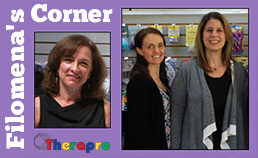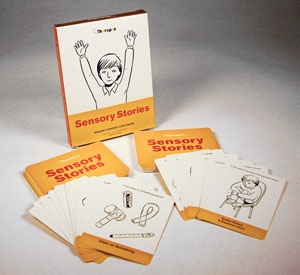Claire McCarthy
April brings the beginnings of warm weather. It brings more time spent outside and the return of the birds who went south for winter. It also brings Autism Awareness Month. Fundraisers are held for local and nationwide autism related organizations. Facebook and Instagram are full of memes, posts, stories, and quotes about autism. This is all great, but what happens on May 1st? What happens when the posts get buried under cute animal videos and the fundraising moves onto the next mission?
Now, don’t get me wrong. I think awareness is wonderful. However, most of the world is very aware of autism now. They know organizations exist for it. There are plenty of tv shows and movies that portray autistic characters. We see autism in the news. What we need to be striving for is Autism Acceptance. We need to be striving for a world where autistic individuals are valued as community members, coworkers, and friends. A world that values and honors autism 365 days a year instead of 30.
To begin the move towards Autism Acceptance, there are some key terms we should know.
- Neuro diversity: a viewpoint that brain differences are normal, rather than deficits
- Neurodivergent: people who have diagnoses such as ADHD, autism, OCD, dyslexia, etc.
- Neurotypical: individuals of typical developmental, intellectual, and cognitive abilities
- Ableism: discrimination in favor of able-bodied or neurotypical people
Most of us on this blog are familiar with autism. For those who may not be, it is defined as “a developmental disorder of variable severity that is characterized by difficulty in social interaction and communication and by restricted or repetitive patterns of thought and behavior”. It is deficit based. There is nothing wrong with acknowledging the challenges seen in an autistic individual. However, let’s flip that around with a quote from NeuroTribes and define neurotypical: “Neurotypical syndrome is a neurobiological disorder characterized by preoccupation with social concerns, delusions of superiority, and obsession with conformity. There is no known cure.” Makes one think a little, doesn’t it?
To continue on a path of autism acceptance, we also need to target the myths around autism. One I hear all the time is, “S/he can’t be autistic. S/he speaks so well.” The DSM-5 and DSM-5-TR say nothing about verbal communication deficits in regards to autism. “Accompanying language impairment” can be added to an autism diagnosis, but having typical spoken language skills does NOT mean an individual is not autistic.
Another common misconception is that every child who receives an autism diagnosis must receive Applied Behavior Analysis (ABA) services and must be eligible for an Individualized Education Plan (IEP) when they reach 3 years of age. Yes, ABA is one of the few evidence based autism specific teaching methods. This research dates back to the 1960s when autism rates were 1 in 2,500 people. This research was done on individuals that would be considered “low functioning” and often had accompanying Intellectual Disability. Autistic learners needs to be seen as individuals the same way that neurotypical learners are seen.
That last paragraph brings me to another issue that gets in the way of autism acceptance- functioning levels. Parents and therapists are so quick to get caught up in levels. Many people think that a functioning level can tell you all about the autistic individual. One of the problems with levels, though, is that it makes it harder to see past the diagnosis. When someone is diagnosed with “high functioning autism” people have a hard time understanding their challenges, honoring how hard that individual works day to day to appear high functioning, and sees less need for services. When someone is diagnosed with “low functioning autism” people don’t see their competence, assume lower intellectual capacity, and lower their expectations for the individual.
What can we do as therapists, parents, family members, and friends to change from Autism Awareness to Autism Acceptance? A simple place to start is to change our vocabulary. Try to ditch “red flags” or “symptoms” and replace them with “characteristics” or “learning profile.” Don’t be afraid to use “the A word” in your every day life. Talk about individuals being autistic the same way you would talk about someone wearing glasses or having black hair. Encourage children to ask questions about themselves or others. Using statements such as “don’t stare” or “mind your business” inadvertently tell children that what the autistic child or adult is doing is “wrong” or something to be ashamed of.
Along the lines of observing behaviors, remember that all behaviors serve a purpose. A tantrum or “noncompliance” is not the child being difficult or trying to upset an adult. They are letting us know they have had enough, do not understand what we are trying to do, or do not understand why we are trying to do something. Self-stimulating behaviors should not be a target in therapies. These are physical needs to self-regulate and make sense of a neurotypical world. The more an autistic individual suppresses the need to stim the more the individual will need to eventually “get it out” and it will likely be in a way that is not fun for them or others such as self-injurious behavior or a meltdown.
Some people may be reading this and thinking, “But what about all of the challenges? What about those who may never be able to live independently or have challenging behaviors day after day?” This blog is in no way saying that these challenges should be ignored. In fact, that would be just as ableist as saying the positive characteristics of autism should be ignored. What needs to be thought about is that we are not out there to “cure autism” or “teach a child to look typical.” We are out there to make an autistic person who has challenges become an autistic person with as little barriers in their life as possible.
One of the best things we can do is to listen to autistic voices. Autistic adults and children can teach us more about autism than any study or textbook can even begin to. Families who have loved ones with autism are also a wonderful resource. If it hasn’t been said clearly enough, the best thing to remember is that autistic individuals are just that- individual. They will all have different thoughts, feelings, and beliefs in regards to THEIR autism. Autism Acceptance begins with understanding that and valuing each individual for exactly who they are.


